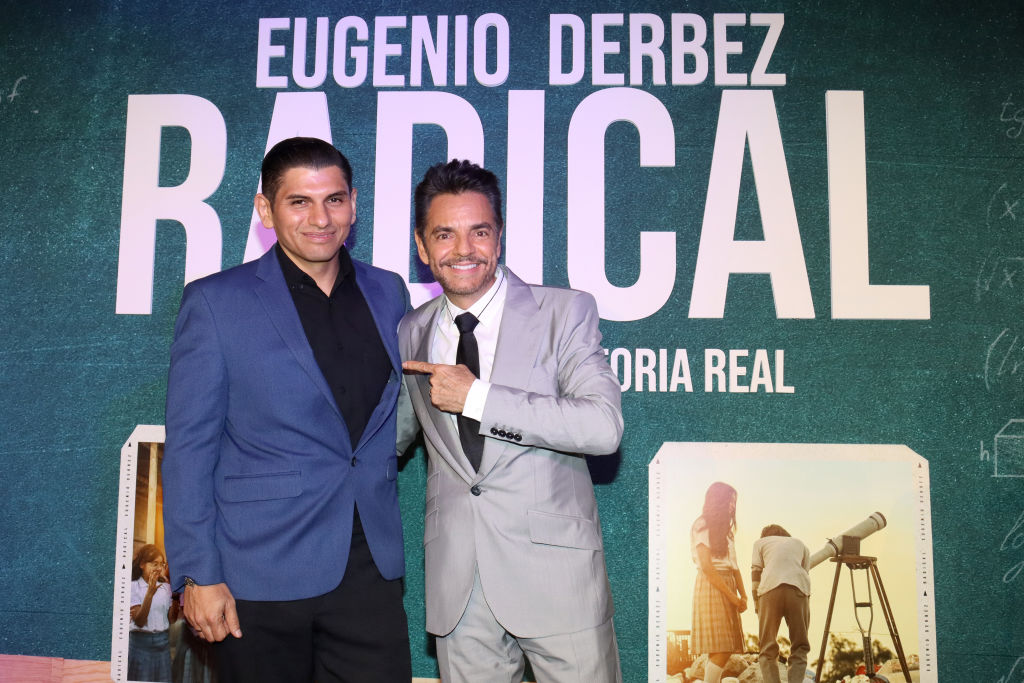
Eugenio Derbez’s Film ‘Radical’ Tells True Story of a Mexican Hero Who Teaches in a Border Town
In 2011, the city of Matamoros, Tamaulipas was living through one of the worst eras of Mexico’s war on drugs. That year, the border city of almost 500,000 residents, was a flash point for cartel-induced violence and mass graves.
According to surveys by the Mexican government, 16 percent of residents 18 and over were no longer attending school. Almost 83 percent were not letting their kids leave the house.
Within that violence and fear, there was one school that would soon make headlines across the world. Next to a garbage dump in the city was the José Urbina López Primary School. Sergio Juárez Correa taught there for five years.
At that point, he had been teaching the government-mandated curriculum. However, as he got ready for a new school year, he felt that something had to change.
“This group was alone,” he said in an interview with Enrique Figuero. “They would get a new teacher for a bit and then they would leave. They felt abandoned and neglected.”
So, Juárez did more research into teaching techniques and pedagogical theories that he could bring into his classroom. He wanted the kids to let their own curiosity guide them, he told the BBC in a 2013 interview.
Sergio Juárez Correa’s astonishing teaching feat made its way to the big screen
“Radical” is an inspirational drama based on Juárez’s sixth-grade class, starring Eugenio Derbez. While the Mexican actor and comedian is at the center, he shares the screen with three young actors.
One student, Paloma Noyola Bueno (played by Jennifer Trejo) became an international sensation in 2013 when Wired Magazine dubbed her “the next Steve Jobs.”
Noyola was 12 at the time of the article, receiving the highest math score in the country. Her results quickly attracted the attention of Mexican media outlets and eventually the U.S.
But Noyola wasn’t the only one benefiting from Juárez’s new teaching methods.
According to Wired Magazine, ten other students had scores in the 99.99 percentile in math. Sixty-three percent of his students had made it to the “excellent” category in their scores. Compared to the previous year, when 45 percent of the students failed the math section, these scores proved that his new teaching style was working.
Juárez wanted to get rid of the idea that the school was a punishment for his students, or that they were being forced to be there.
“The best way to do that is not just being their teacher but to be a part of the team,” he said in the interview with Figuero. “And making sure they understand that we’re all in the same boat towards their dreams.”
Juárez changed his teaching methods in the classroom, therefore changing how students learned
The teaching model Juárez brought into his classroom was based on the work of Sugata Mitra, a professor at Newcastle University in the U.K. Juárez applied this teaching philosophy that relies on giving students access to computers and the Internet without instructions.
The problem for Juárez was that the school did not have access to the Internet or computers for the students. Eventually, he got one computer to bring into the classroom.
“At first, they were scared because they were in front of something they had never even touched before,” he told the BBC. “They were learning about things that I had never been able to explain. They were investigating, accessing the Internet and learning so much about the world that for them seemed impossible.”
Juárez continues teaching while his former students succeed
The movie premiered at the Sundance Film Festival and was the winner of the “Festival Favorite” award this year. Juárez and Noyola attended a press conference in Mexico City along with the other actors. Noyola is now 21 and is finishing her law degree in Mexico.
Juárez is still teaching in Matamoros and hopes this movie inspires other kids to become teachers.
“I want to motivate my students,” he said in a press conference. “That’s one of the most important things we can do as teachers so the next day they come back eager to learn.”




